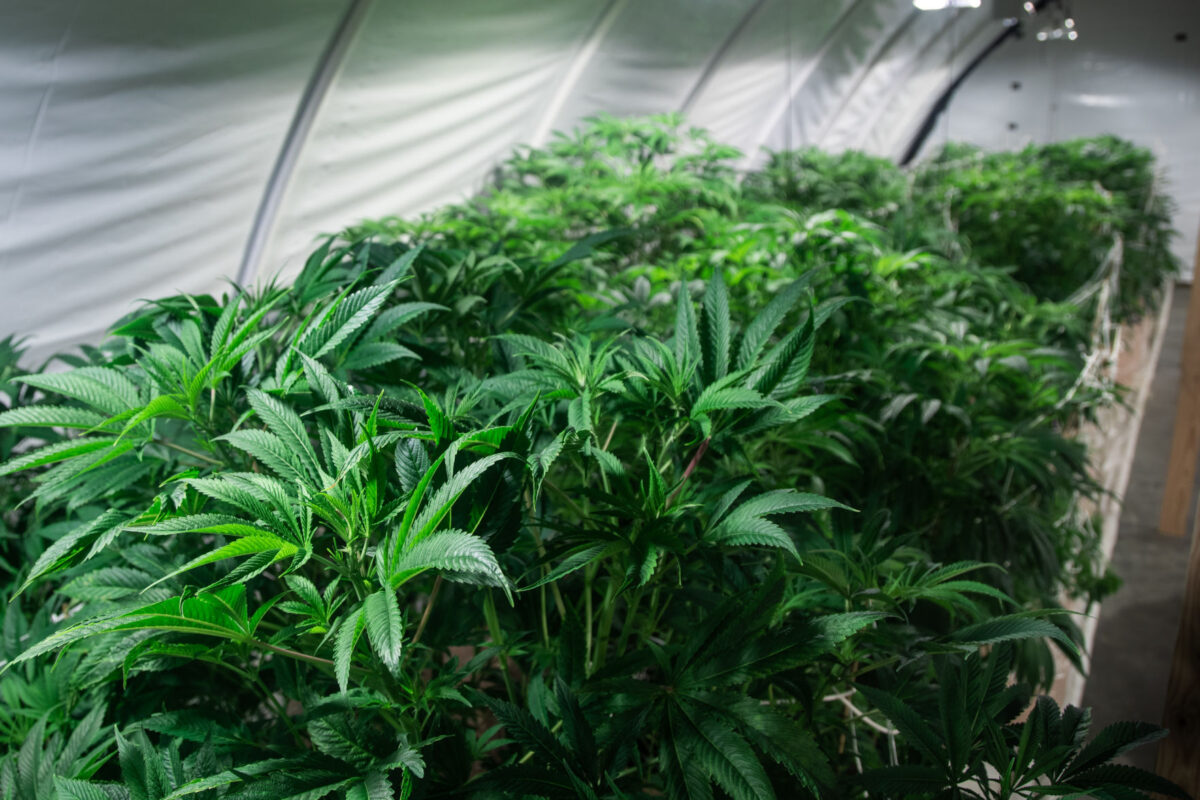UDOH Launches Medical Cannabis Program | News, Sports, Jobs
Ben Dorger, Standard Examiner file photo
Cannabis plants grow in the True North grow facility Thursday, Jan. 30, 2020, in northern Utah. Medicinal plants will supply several state pharmacies.
SALT LAKE CITY – If you’ve been struggling to get medical cannabis, things are about to get easier.
The Utah Department of Health, along with medical cannabis pharmacies, launched a program on Wednesday that will increase access for eligible patients. The program will allow any physician, physician assistant, chiropodist and advanced practice nurse with a controlled substance license to recommend medical cannabis to 15 of their adult patients. This represents more than 21,000 medical providers who will now be able to help patients diagnosed with an eligible condition.
“This program expands access to medical cannabis for eligible patients by increasing the number of clinicians who have the ability to recommend medical cannabis,” said Richard Oborn, of the UDOH Center for Medical Cannabis. “In the past, adult patients had to get a referral from one of 800 providers registered with the Utah Department of Health, but that’s no longer the case.”
Utah’s medical cannabis law gives specific designation to these medical providers, according to Oborn. Patients under the age of 21 will still need to obtain medical cannabis recommendations from providers registered with the state health department.
Some qualifying conditions include AIDS/HIV, Alzheimer’s disease, amyotrophic lateral sclerosis (ALS), cancer, treatment resistant persistent nausea, Crohn’s disease, multiple sclerosis, epilepsy, end stage and persistent pain. Inpatients are also qualified.
According to the University of Utah Health, medical cannabis, also known as medical marijuana, comes from two chemical compounds in the cannabis plant – delta-9 tetrahydrocannainol (THC) and cannabidiol (CBD). The CBD part of the substance is not psychoactive. However, THC is, and it is the component that causes users to get “high”. Currently, medical cannabis is not approved by the Food and Drug Administration. Several studies have also shown that medical cannabis can be harmful in some people and can impair judgment and decision-making, interfere with concentration and short-term memory, reduce reaction time, and interfere with anti-epileptic drugs. .
Another harmful side effect can be addiction, also known as cannabis use disorder, according to research presented at this year’s American Heart Association Virtual Scientific Sessions. Research has shown that an increasing number of people under the age of 50 are being diagnosed with the disease and have been hospitalized for a heart attack. The AHA issued a recommendation not to smoke or vaporize any cannabis-containing product due to its potential harmful effects on cardiovascular health, and called for more research into cannabis use among youth and high-risk populations. risk.
“Healthcare professionals need a better understanding of the health implications of cannabis, which has the potential to interfere with prescribed medications and/or trigger cardiovascular disease or events such as heart attacks and strokes. strokes,” said Robert Page, AHA Science Statement Chair. on cannabis.
Utah’s medical cannabis program was launched in March 2020. To date, more than 41,000 Utahns have active medical cannabis cards who can purchase medical cannabis products from any of 14 pharmacies in the state. Pharmacies are located in North Logan, Brigham City, South Ogden, West Bountiful, Salt Lake City, South Jordan, Lehi, Provo, Payson, Springville, Cedar City and St. George. A 15th location will open in Price by the end of the year.
During the 2022 Utah legislative session, Senator Daniel Thatcher of R-West Valley City introduced Senate Bill 46, titled “Medical Cannabis Patient Protection Amendments.” The bill, which has bipartisan co-sponsors, would add protections for public employees in possession of medical cannabis cards.


Comments are closed.